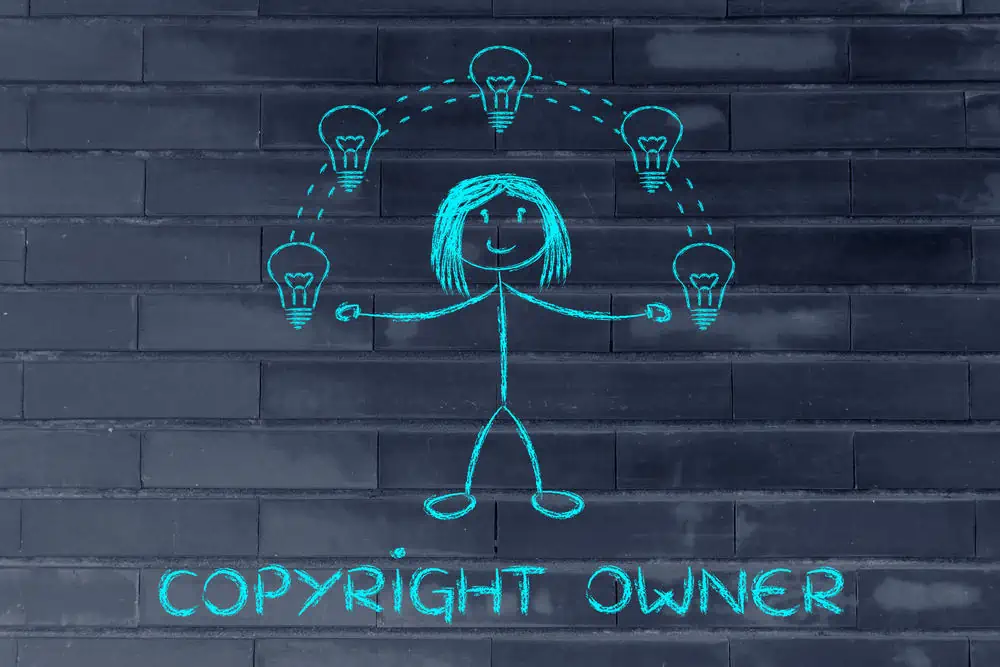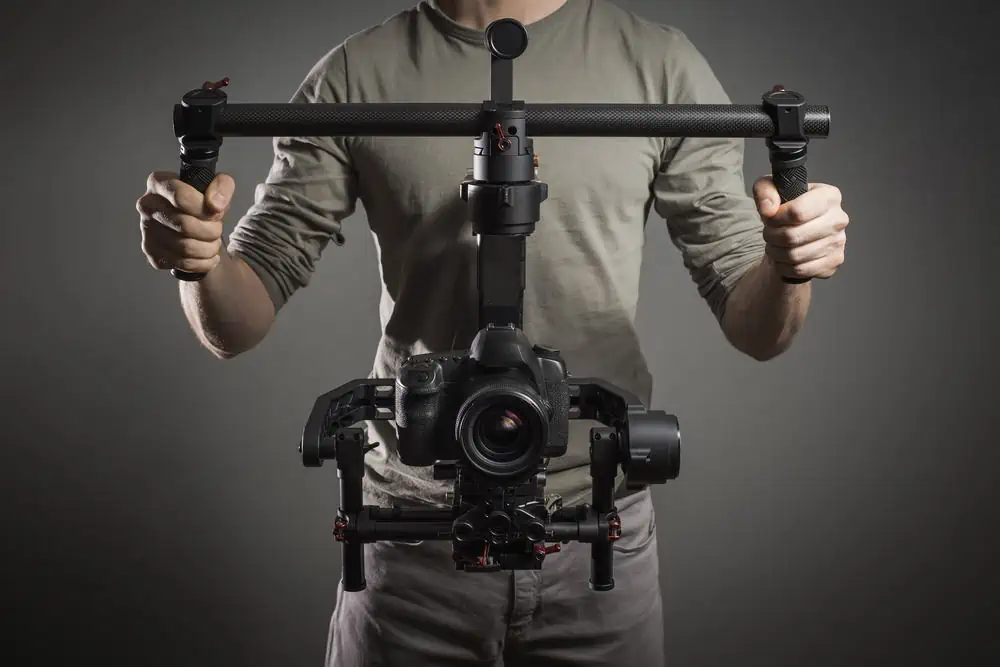For musicians and music creators, understanding and maximizing royalties is crucial for earning a sustainable income. Music royalties are the payments that music creators and copyright holders receive for the use of their music. They are generated through various avenues such as performance royalties, digital performance royalties, mechanical royalties, and more. This article aims to provide a comprehensive guide on how to get started earning royalties from your music.
Disclaimer: This information is general in nature and for informational purposes only. It is not personal financial advice and has not taken into account your personal financial position or objectives. Make sure to refer to a licensed financial or tax advisor.
Table of Contents
Understanding Music Royalties
Music royalties encompass a wide range of payment types. Performance royalties are generated every time a song is played in public, whether it’s through live performances or radio airplay. Digital performance royalties, on the other hand, stem from the digital performance of music, where platforms like Spotify or Apple Music play your tracks. Mechanical royalties, on the other hand, involve the payments made to songwriters and composers when their music is reproduced.
What Are Performance Royalties in Music?
Performance royalties are a type of royalty paid to songwriters, composers, and publishers whenever their music is performed publicly. This could be through live performances, in restaurants, on the radio, or in any other public forum. Organizations such as ASCAP and BMI help collect these royalties and distribute them to the rightful owners.
Explained: Digital Performance Royalties
Digital performance royalties are generated when your music is played on digital platforms like Spotify, Apple Music, or other streaming services. Artists and copyright holders are entitled to digital performance royalties for each stream of their music, making it essential to have your music registered with the relevant performance rights organizations.
Understanding Mechanical Royalties
Mechanical royalties come into play when someone wants to reproduce your music. This could be in the form of CDs, digital downloads, or in other physical formats. Songwriters and composers are paid a mechanical royalty for each unit sold or downloaded, with the rates often being determined by the statutory mechanical royalty rate.
Types of Music Royalties
There are various types of music royalties that creators can earn from their work. Streaming royalties have become increasingly important with the rise of digital music platforms. Neighboring rights royalties, which pertain to the rights of performers and master rights owners, are also crucial in the modern music landscape. Additionally, music publishing royalties play a significant role in the overall revenue generated by musical compositions.
Discovering Streaming Royalties for Your Music
With the prevalence of music streaming platforms, artists can earn streaming royalties every time their music is played. Services like Spotify and Apple Music pay out royalties to artists based on the number of streams their songs receive. It’s important for musicians to understand how to register their music with these platforms to ensure they collect these royalties effectively.
Insight into Neighboring Rights Royalties
Neighboring rights royalties refer to the right to publicly perform or broadcast a sound recording. They are separate from the copyright in the song itself and are paid to performers and master rights owners for their contributions to a sound recording. Understanding and collecting neighboring rights royalties is important for all parties involved in the creation of music.
How Do Music Publishing Royalties Work?
Music publishing royalties are generated from the utilization of musical compositions. Music publishers play a key role in administering these royalties and ensuring that songwriters and composers are compensated for the use of their work. Understanding the intricacies of music publishing is crucial for maximizing earnings in the music industry.
Getting Paid for Your Music
Once you have a clear understanding of the different types of music royalties, it’s essential to know how to get paid for your music. Registering your music for royalties is the first step in ensuring that you receive your rightful earnings. Exploring the various avenues through which music royalties are generated and paid is vital for all musicians and music creators.
Understanding How to Register Your Music for Royalties
Registering your music with the relevant performance rights organizations and digital platforms is crucial for the collection of royalties. This involves providing detailed information about your music and its creators to ensure that royalties are accurately distributed to the rightful parties. Each platform and organization may have specific requirements for registration, making it important to understand and fulfill these criteria.
Step 1 – Understanding Different Types of Music Royalties
There are various types of music royalties that creators are entitled to, and understanding each type is essential for maximizing earnings. Whether it’s public performance royalties, mechanical royalties, or digital royalties, being well-versed in the different forms of royalties ensures that you can effectively collect the earnings from your music.
Performance Royalties
Whenever your song is played on radio, TV, bars, live venues, or other public places, performance royalties are collected and paid out by Performing Rights Organizations (PROs). Major PROs include ASCAP, BMI and SESAC.
The money comes from licenses these PROs issue venues, stations etc. and gets distributed back to songwriters/publishers based on data on plays.
This can be a significant revenue stream, especially once you have a radio hit or fan favorite cuts getting played out regularly.
Digital Streaming Royalties
As consumption has massively shifted to streaming, this has become the most dominant royalty type. Your songs on Spotify, Apple Music and other platforms generate royalties whenever they are played based on their pro rata share of total streams.
With over 500 million monthly listeners just on Spotify alone, these micro-payments quickly stack up into thousands for hits. Distribution companies pay out directly based on your streams reported.
Getting properly registered on all leading streaming services is essential.
Mechanical Royalties
When compositions and master recordings get reproduced and distributed on CDs, vinyl or permanent digital downloads, mechanical royalties kick in. Songwriters can earn 9.1 cents per unit in the US, paid out by publishers.
Whilst revenue has dropped due to streaming shift, physical products and downloads still matter.
Synchronization & Licensing Royalties
This refers to royalties when compositions get “synced” and used in TV, film, ads or video games. Popular tracks can earn in the tens of thousands for a single sync license if placed in a major campaign. Publishers pitch opportunities and facilitate sync deals.
Expanding into sync greatly increases royalty earning potential over time.
Those are the four core categories – though secondary types like print also exist. With the right registrations and distribution, each avenue contributes to overall earnings.
Step 2 – Registering Your Songs
Once you understand the royalty types, properly registering your songs is essential for collection. Key registration checklists:
Join a Performing Rights Organization (PRO)
As a songwriter, signing up to an organization like ASCAP, BMI or SESAC ensures license fees from public performances get paid out in royalties.
Provide your bank details, tax info and catalog data so your works can be accurately tracked and attributed to you. This registration collects public performance royalties.
Sign Up with a Distribution Company
Use trusted distribution companies like Distrokid, CD Baby or Tunecore to get music onto major streaming platforms.
They deliver music to platforms, monitor activity, collect royalties and pay out earnings. Handles registrations and helps maximize digital royalties.
Register Copyrights
Filing copyright registration with the U.S. Copyright Office provides further legal protections against unauthorized uses. Strongly recommended.
List Publishing Details
Provide publishing ownership %, publisher details and affiliated PRO to aggregators so royalties flow correctly based on rights splits.
Getting this foundation right ensures your songs are registered with all the entities needed for effective royalty collection and licensing.
Step 3 – Releasing Music
Once registrations are handled, focus on distributing music to all leading platforms via your aggregator. Follow these best practices:
Distribute Everywhere
Upload music across all major streaming platforms – Spotify, Apple Music, Amazon Music, YouTube Music, Tidal and more. Widespread distribution maximizes streams and earnings.
Here is a list of platforms to consider when distributing digitally. The process to get started on each platform may vary, but generally, the steps are as follows:
- Tidal
- Create an account on Tidal’s website or through their mobile app.
- Upload your music through a digital distributor or aggregator, such as DistroKid or TuneCore.
- Wait for your music to be approved and added to Tidal’s library.
- Once your music is live, you can start earning royalties based on the number of streams.
- Apple Music
- Create an account on Apple Music’s website or through their mobile app.
- Upload your music through a digital distributor or aggregator, such as DistroKid or TuneCore.
- Wait for your music to be approved and added to Apple Music’s library.
- Once your music is live, you can start earning royalties based on the number of streams.
- Amazon Music
- Create an account on Amazon Music’s website or through their mobile app.
- Upload your music through a digital distributor or aggregator, such as DistroKid or TuneCore.
- Wait for your music to be approved and added to Amazon Music’s library.
- Once your music is live, you can start earning royalties based on the number of streams.
- Spotify
- Create an account on Spotify’s website or through their mobile app.
- Upload your music through a digital distributor or aggregator, such as DistroKid or TuneCore.
- Wait for your music to be approved and added to Spotify’s library.
- Once your music is live, you can start earning royalties based on the number of streams.
- Deezer
- Create an account on Deezer’s website or through their mobile app.
- Upload your music through a digital distributor or aggregator, such as DistroKid or TuneCore.
- Wait for your music to be approved and added to Deezer’s library.
- Once your music is live, you can start earning royalties based on the number of streams.
It’s important to note that the process may vary depending on the platform and the digital distributor or aggregator you choose to use. Additionally, you may need to provide additional information, such as your tax information, to receive royalties. It’s recommended to research each platform’s requirements and guidelines before getting started.
Two popular distribution platforms are DistroKid and TuneCore.
Distrokid
DistroKid is an independent digital music distribution service that allows musicians and other rights-holders to distribute their music to major streaming services such as Spotify, Apple Music, Amazon Music, Tidal, TikTok, YouTube, and more. It was founded in 2013 by American entrepreneur Philip J. Kaplan and offers unlimited uploads and the ability to keep 100% of earnings without taking any commission or royalties. DistroKid was initially a side-feature of Kaplan’s music social network, Fandalism, and was split out into its own company in 2015. It has gained popularity among musicians due to its ease of use and affordable pricing plans. TuneCore is a digital music distribution, publishing, and licensing service founded in 2006 and based in Brooklyn, New York. It allows musicians and other rights-holders to distribute their music to over 150 digital music stores and streaming services, including Spotify, Apple Music, Amazon Music, and more.
- Offers unlimited uploads and allows artists to keep 100% of their earnings without taking any commission or royalties.
- Known for its speed and extra marketing features.
- Has a pleasant support team but may not provide as much extra support as TuneCore.
- Suitable for artists who prioritize speed and marketing features.
TuneCore
TuneCore offers unlimited uploads and allows artists to keep 100% of their earnings without taking any commission or royalties. In addition to distribution, TuneCore offers additional services such as music publishing administration, YouTube monetization, and sync licensing opportunities. TuneCore’s team also works globally to pitch artists’ music for placements in film, TV, commercials, and video games TuneCore offers unlimited releases starting at $24.99/year and provides artists with real insight from top artists, expert advice, and VIP access to exclusive TuneCore services.
- Offers unlimited uploads and allows artists to keep 100% of their earnings without taking any commission or royalties.
- Known for its more affordable pricing and additional features like music publishing administration and artist advice.
- Provides YouTube content ID, Shazam recognition, and the ability to set the release date even in the cheapest plan.
- Suitable for artists who care most about cost and want additional features like music publishing and artist advice.
Both DistroKid and TuneCore platforms offer fast distribution to major streaming services and stores, but TuneCore has a slight edge in terms of pricing and additional features. However, the choice between DistroKid and TuneCore ultimately depends on your specific needs and preferences.
Provide Rich Metadata
Include lyrics, ISRC codes, genre details, credits and more – this data feeds discovery algorithms enabling new listeners to find songs.
Optimize Your Artist Profile
Filling out bios, tour dates and press assets helps further aid discovery and surfaces your catalog to fans.
Consider Releasing Strategies
Factor in platform relations, priority access and market trends when picking release timing. Friday global releases offer the best chance for big opening weeks to build momentum.
Promote Releases
Pitch music to playlists, run contests, create engaging social content and explore grassroots promotion to drive streams and earn royalties!
Distribution is just the start – continual promotion expands listeners over time.
Step 4 – Collecting Royalties
Once the music is out and songs are being performed or streamed, the royalties will start accumulating! Here is what artists need to know about collecting earnings:
Payment Cycles
Platforms and PROs issue payments on set schedules – monthly, quarterly or annually. Understand cycles to track incoming earnings.
Payment Minimums
Certain usage and streaming thresholds need to be met before royalties are issued. Maximizing plays helps hit minimums.
Split Sheets
Songwriters, publishers and collaborators all get a cut based on agreed splits. Registration details enable accurate sharing.
Accounting Practices
Manage finances, save tax documents, and learn accounting practices as royalty income can add up to meaningful sums.
Don’t just create then forget about royalties – be diligent tracking registration details and payment cycles so you get all the earnings owed.
Maximizing Royalties for Your Music
To maximize your earnings from music royalties, working with a music distributor can be highly beneficial. They can help collect your royalties from different platforms and ensure that you receive your earnings in a timely manner. Additionally, understanding the latest trends in music royalties and leveraging them to your advantage can significantly boost your overall income.
Utilizing a Music Distributor to Collect Your Royalties
Music distributors play a crucial role in collecting and distributing royalties to music creators. They have the infrastructure and networks to collect earnings from various sources, including streaming platforms, radio airplay, and public performances. Collaborating with a reliable music distributor can streamline the process of royalty collection and help you focus on creating music.
Tips on Maximizing Print Music Royalties
For musicians involved in print music, understanding how to maximize print music royalties is essential. This involves working with music publishers, understanding the licensing process, and ensuring that your music is utilized in various publications and performances to generate consistent royalties. Exploring new opportunities for print distribution can also contribute to maximizing your overall earnings.
Understanding the Latest Trends in Music Royalties
The music industry is continually evolving, and staying updated on the latest trends in music royalties is crucial for maximizing your earnings. Whether it’s the emergence of new streaming platforms, changes in royalty rates, or evolving consumer behavior, being aware of these trends enables you to adapt your strategies and capitalize on new opportunities within the industry.
Protecting Your Music Rights
Securing your music rights and ensuring that you collect all your royalties is paramount in the music industry. Music copyright, neighboring rights royalties, and understanding the mechanisms for collecting royalties are integral parts of safeguarding your music rights and securing your rightful earnings.
Explaining the Importance of Music Copyright
Music copyright protects the original works of music creators and provides them with the exclusive right to use and distribute their music. Understanding the legal aspects of music copyright and ensuring that your music is properly copyrighted is vital for protecting your creations and earning royalties from their use.
Insight into Neighboring Rights Royalties
Neighboring rights royalties contribute to the earnings of performers and master rights owners for the use of sound recordings. Knowing how to effectively collect these royalties and understanding the rights that underpin sound recordings is crucial for all parties involved in the music creation process.
Ensuring You Collect All Your Music Royalties
To ensure that you collect all your royalties, it’s important to have a clear understanding of the various types of music royalties and the channels through which they are generated. Working with music publishers, performance rights organizations, and neighboring rights collection societies can help streamline the process of royalty collection and ensure that you receive all the earnings you are entitled to.
Getting Your Royalty Statements
Once registered, you will receive periodic royalty statements detailing your earnings from different sources. Royalty accounting can get complex with factors like song splits, but most PROs and distribution companies provide royalty calculators and payment schedules to understand payouts.
Sale download mechanicals may have different rates than streaming mechanicals, so read statements carefully.
The Bottom Line – Getting Started Earning Passive Income from Your Music
The key is to continually expand your music catalog and find new opportunities to get your songs placed. Pitch songs to artists and publishers, license music for media uses, collaborate with artists to co-write, and distribute physical music products. This will organically grow your royalty stream over time by generating royalties across more avenues.
Maintaining ownership of song rights via songwriter agreements is also key for long term royalty collection.
Understanding intricacies like neighbouring rights and regularly tracking royalties takes work but maximizes your earnings in the end!
FAQ
Q: What are the different types of royalties in the music industry?
A: The main types of royalties in the music industry include performance royalties, mechanical royalties, sync royalties, and streaming royalties.
Q: How can I get started collecting performance royalties for my music?
A: To start collecting performance royalties for your music, you can register with a performance rights organization (PRO) such as ASCAP, BMI, or SESAC.
Q: What do I need to know about getting the latest royalties from my music?
A: To ensure you receive the latest royalties from your music, it’s important to register your compositions with all relevant PROs and to keep your music metadata updated.
Q: How are performance royalties for artists calculated?
A: Performance royalties for artists are calculated based on factors such as the usage of the music, the type of performance, and the territories where the music is performed.
Q: How can I ensure I collect all the royalties I’m owed for my music?
A: To collect all the royalties you are owed for your music, it’s crucial to have a clear understanding of the different types of royalties and to register your works with the appropriate organizations and platforms.
Q: What are sync royalties and how can I receive them?
A: Sync royalties are earned when music is synchronized with visual media such as films, TV shows, and advertisements. To receive sync royalties, you can work with music supervisors or licensing agencies.
Q: How can I get royalties from my music being played on streaming platforms like Spotify?
A: To receive royalties from your music being played on streaming platforms, you can register with platforms like Spotify for Artists and ensure your music is properly distributed through a digital music distributor.
Q: What are recording royalties and how can I ensure I collect them?
A: Recording royalties are paid to artists and recording rights holders for the sale or use of recorded music. To collect these royalties, it’s essential to have clear agreements in place and to work with reputable music distributors.
Q: How are royalties generated for global music usage?
A: Royalties for global music usage are generated through international copyright and royalty collection organizations, which ensure that rights holders receive compensation for the use of their music worldwide.
Can Freelance Writers Also Earn Royalties from their Work?
Yes, musicians can also earn royalties from their freelance writing. Many writers who create content for musicians can negotiate royalty agreements as part of their freelance writing opportunities. This can be a lucrative way to earn passive income while showcasing their writing skills in the music industry.
Q: Where can I find information about the different types of royalties and how to collect them?
A: You can find detailed information about the different types of royalties and how to collect them from resources provided by PROs, music industry organizations, and reputable music business publications.







